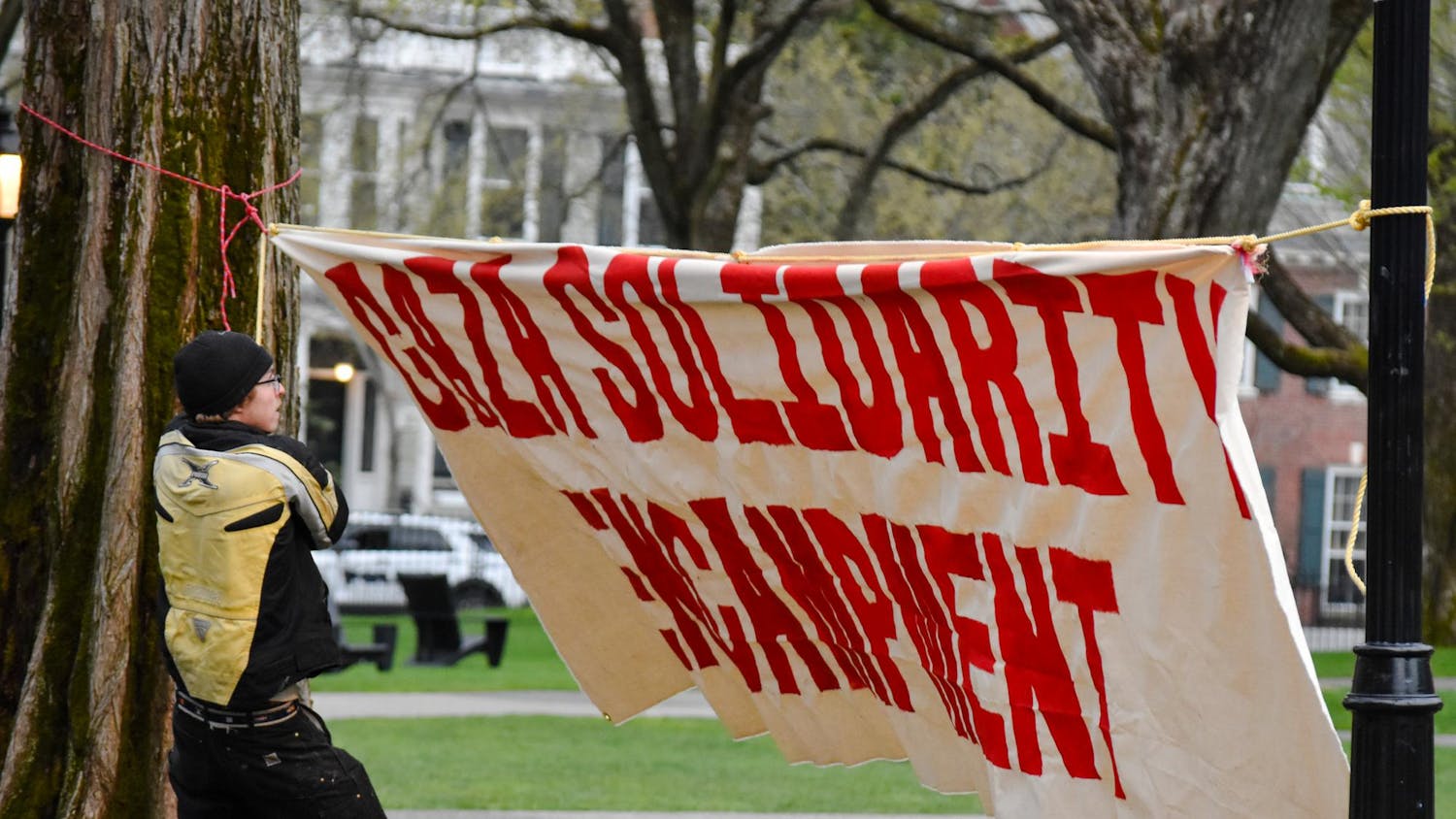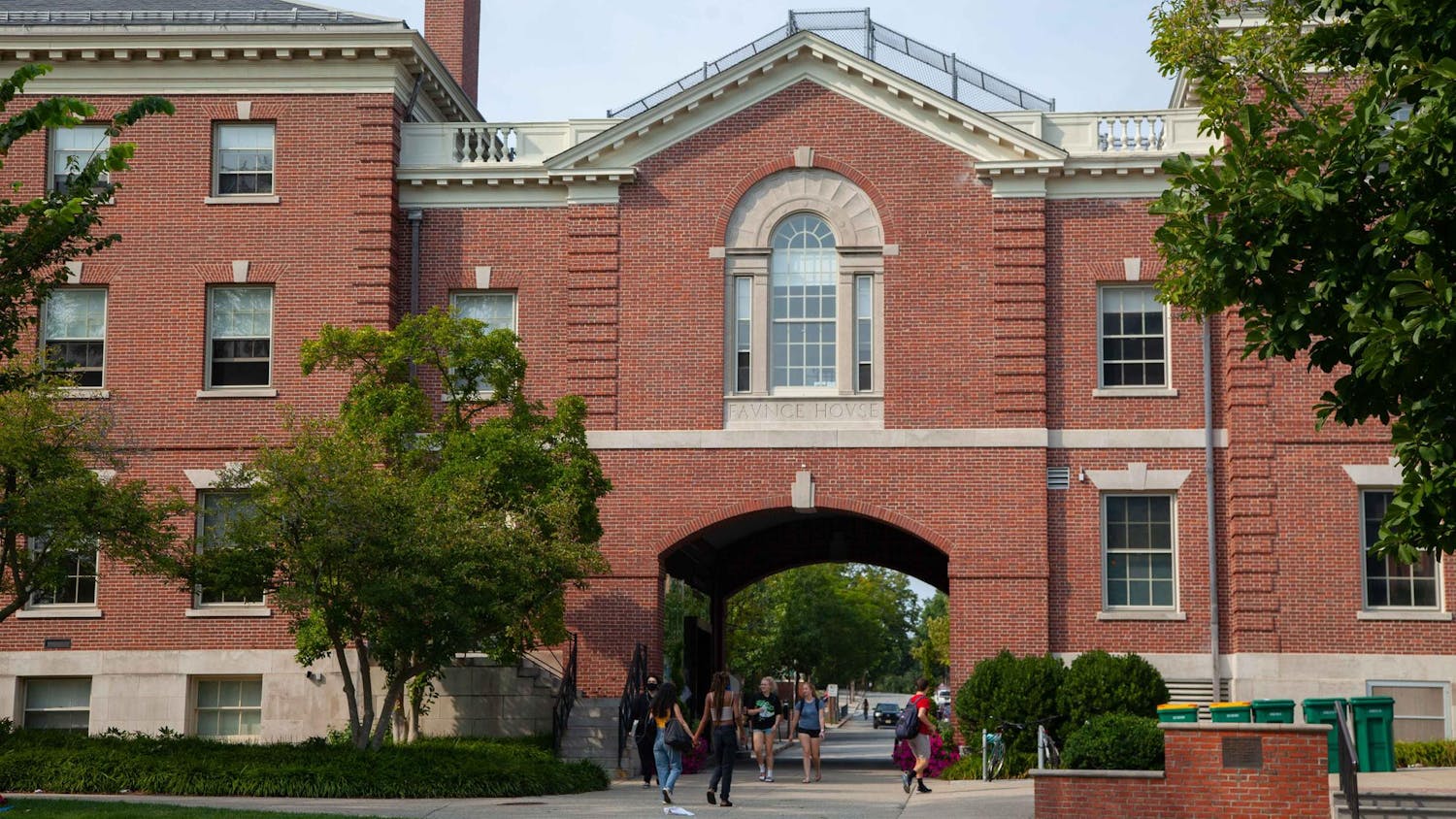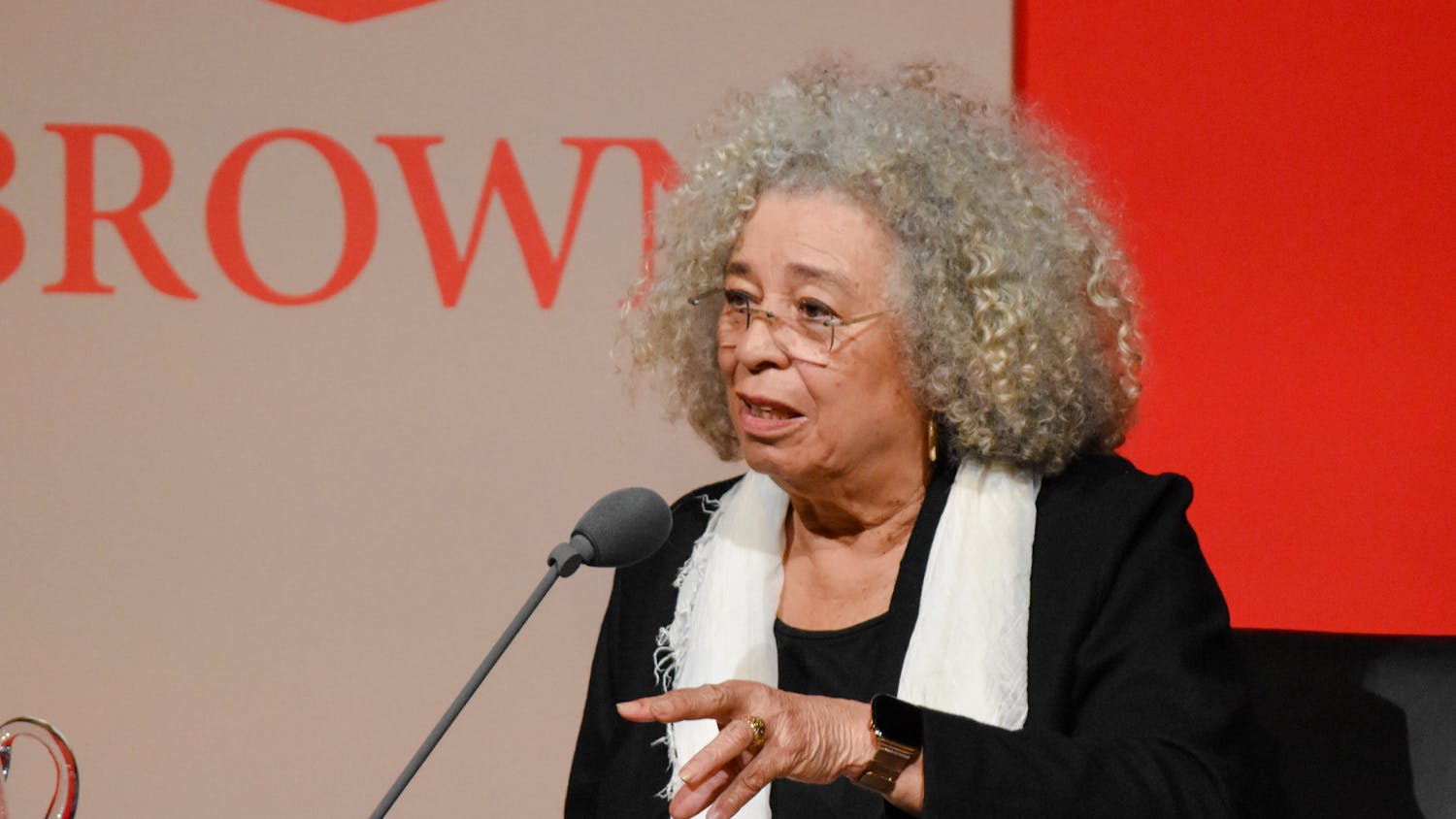Working with the Institute of International Education’s Scholar Rescue Fund, the University is launching an initiative to potentially bring four or five scholars displaced by conflicts in the Middle East to Brown, said Provost Richard Locke P’17 at a faculty meeting Tuesday. Locke chaired the meeting, as President Christina Paxson P’19 was traveling.
“Brown has a long tradition of responding to crises,” he said. A short list of refugees who are scholars interested in coming to Brown has been sent to various departments for evaluation of their research interests and fit.
“This is not a PR thing,” Locke said. “We actually want to make a difference.”
The Scholar Rescue Fund offers a $25,000 grant for each scholar, which has to be matched by the University. Locke, who is spearheading the initiative, said he has reached out to provosts of other institutions, and they have since begun a similar process to bring refugee scholars to their own universities and colleges.
The University is also talking with the State Department about the possibility of bringing displaced students to Brown, Locke said. “Maybe we can really make a difference” by relaunching the scholars’ and students’ careers and studies, he said.
Locke also discussed the recently-released operational plan, explaining that it is “simply a plan that’s going to guide our fundraising” in people, programs and places — three large categories in which fundraising and investments have been organized. With the launch of the comprehensive campaign fast approaching, Locke said $845 million has already be raised — $269 million for people investments, $259 million for program investments, $100 million for campus investments, $72 million for “opportunity” — another category of initiatives — and $145 million in undesignated funds.
Locke spoke about how the results of the AAU Campus Climate Survey indicate a “strong sense of peer support” but also “lack of trust in University process and administration.”
As for the prevalence of sexual assault and misconduct on campus, “as educators and many of us as parents, this is just alarming,” Locke said. He continued to explain that faculty advisers and department chairs are “responsible employees,” meaning they are legally required to report any student accounts of sexual assault or misconduct to the Title IX Office.
In the survey, 29 percent of graduate students who reported sexual misconduct identified a faculty member as their offender, a statistic that Locke called “particularly disturbing.”
“These are the kinds of things no one wants to read about or engage with, but we have to,” he said.
Dean of the College Maud Mandel spoke to the faculty about the possibility of instituting a winter session.
Mandel, who is co-chair of the Winter Term Working Group, began by addressing the largest cause of community anxiety: The winter session will not necessitate a change to Brown’s regular fall and spring calendar. The group proposed that the pilot term not align with the Rhode Island School of Design’s winter term in order to preserve Brown’s spring semester timeline.
After bi-monthly meetings and four forums last semester, the group proposed a four-week-long pilot winter session, in which “innovative” courses not available during the regular semester will be taught, Mandel said.
Mandel listed several possible ideas for winter term courses. For example, some professors of the practice who are unable to take an entire semester off from their jobs may be able to take a month off to teach during the winter term — like a theater course taught by an acclaimed director. Other ideas include courses that teach how to use a specific, sophisticated engineering tool, those that allow for intense language immersion or those that are recipients of a Global Experiential Learning and Teaching grant, which provides funds for “destination courses.”
Like regular semester courses, 48 “contact hours” will be required of faculty members, Mandel said. But unlike regular semester courses, professors would have the freedom to set when and how these hours would be conducted, with the possibilities of evening classes, Saturday classes and “blended” online and in-class meetings all on the table, she added. The 48 hours must fall between the last week of December and the third week of January, but at the professors’ discretion, she said. The courses may not require students to be on campus for the full four weeks.
Students would only be able to take one course per session, and Mandel said there is a potential for students to use those credits to petition for accelerated graduation.
The working group’s recommendations also include financial aid being extended to cover the winter session, Mandel said.
One way of designating the pilot “successful” would be if the proposed winter session does not increase the University’s operating budget, Mandel said.
“Brown is not going to make any money from this program,” Mandel said, adding that the money brought in by the program will be used to provide student resources, such as Health Services, Counseling and Psychological Services, Student and Employee Accessibility Services and housing and dining.
“Because we’re Brown,” the proposed winter session is unlike other institutions’, Mandel said. The closest existing model is at Cornell, where the winter term consists of online-only courses.
Four new members were welcomed to the Faculty Executive Committee: Peter Heywood, professor of biology, Johanna Hanink, assistant professor of humanities, Govind Menon, professor of applied mathematics, and Lynne DeBenedette, senior lecturer in slavic studies.
The meeting also included a memorial minute for Adjunct Professor Emeritus of Urban Studies Melvin Feldman ’47, who died in June. Well known for his plaid shirts and white suspenders, he is also remembered for frequently giving students and colleagues tours of the Providence waterfront in his motorboat, said Dietrich Neumann, director of urban studies and professor of history of art and architecture. Feldman was 91 and taught at Brown from 1970–1991.
ADVERTISEMENT




